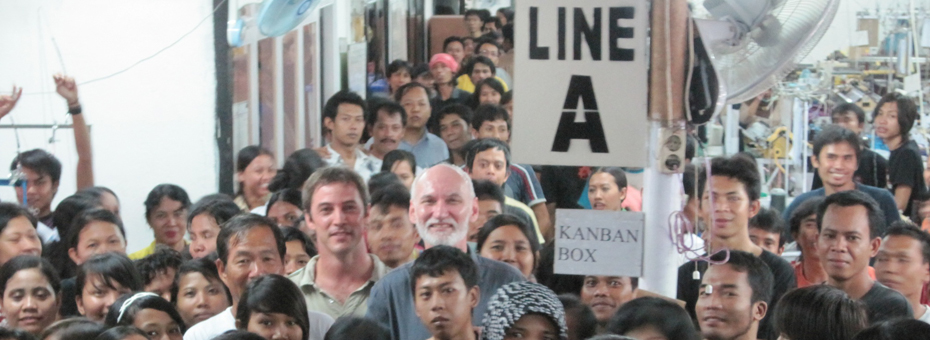Hardly a new thought, it’s probably at least 2,000 years old. “You can’t be a prophet in your own land,” the proverb goes. While not new, its wisdom struck me anew following three recent gemba visits.
On visit one, I saw reams of consultants not just providing consultation but doing the actual improvement work. The executive of the company was happy to be getting results and grateful for the hard work of the consulting team, which was accomplishing things he knew his team could not accomplish on their own. The youngest member of the consulting team was indeed working hard, putting in outrageous hours and reaping the benefits of priceless learning that will serve her well for the rest of her career.
The following week, visit two found me at a comparable organization in the same industry, but this time no consultants were in sight. Unfortunately progress has been so slow that neither improvement, nor learning were in sight either.
Visit three revealed the best-of-both-worlds ground which is all too rare: deep consultant involvement (especially upfront), but involvement that moved steadily to the background, focusing less on directing actual change and more on coaching neophyte internal coaches.
Unlike many of my colleagues, I have a very hard time telling an executive “you really should hire a consultant.” But, despite my aversion to offering this advice, I know there may in fact be no substitute for “borrowing the learning curve” of those who have gone before. If pressed, I must admit that rarely, if ever, does an organization make great progress in lean thinking and practice without taking advantage of advice from someone serving as a consultant, advisor, coach, or “sensei”.
So, just what is the value that “consultants” or “sensei” or outside advisors provide? Three things:
1. The power of the outside voice. The ancient proverb is true: it can be extraordinarily difficult to be a sage counsel in your own organization. Use the outside voice to say the things that you yourself know need to be said and understood.
2. The value of a fresh set of eyes. It is well known that we humans have a tendency to become blind to the truth that is right in front of us. Sometimes we can be too close to the trees to notice that the leaves are turning green to red.
3. The reality of the occasionally good, useful advice and counsel that can only come from deep experience.
Consider also, though, that there is good and bad use of consultants. As you ponder whether to use a consultant, consider even more deeply how to use a consultant. As in the third example above, recognize that FROM DAY ONE you must be intent on internalizing the capabilities provided by the consultant.
As your use-of-consultant plays out, continually ask yourself: Who is doing the learning? Us? Me? Somebody else? Without the vigilance of deliberate learning on your part, it may be the consultant who takes home the real prize: the learning that is the foundation of all sustainable improvement.






